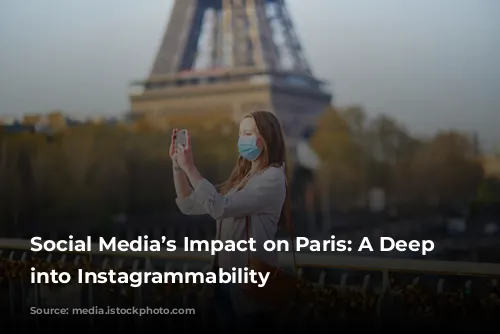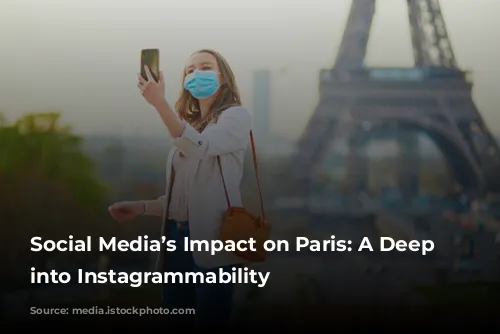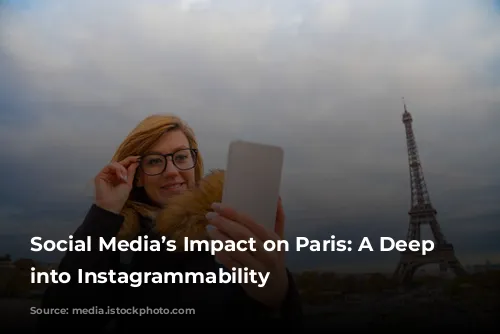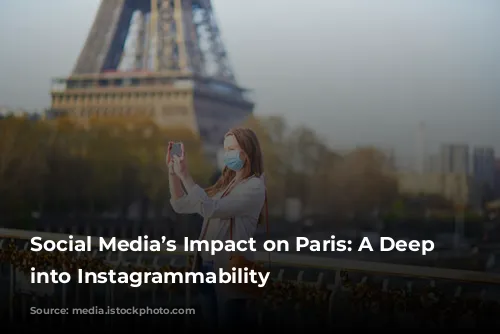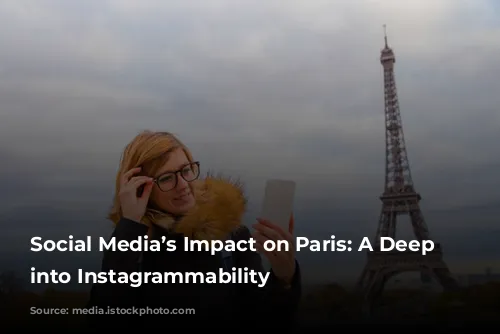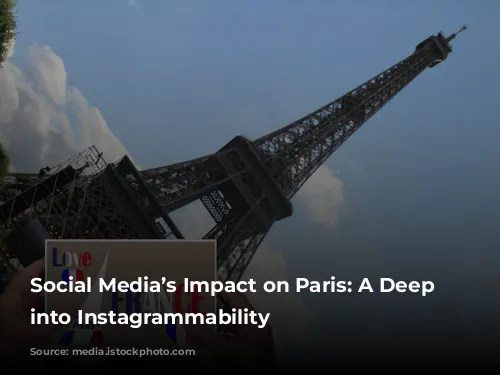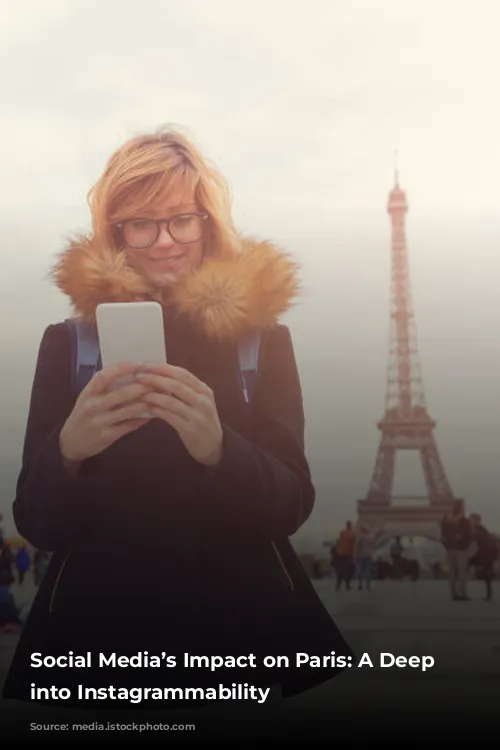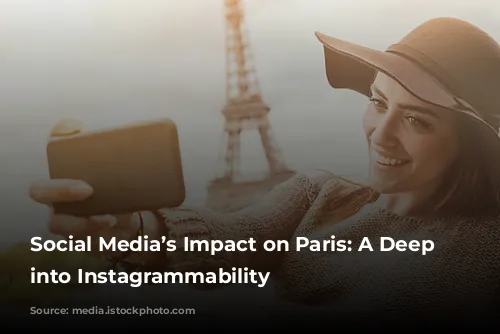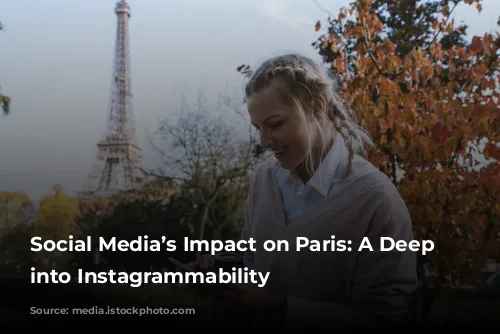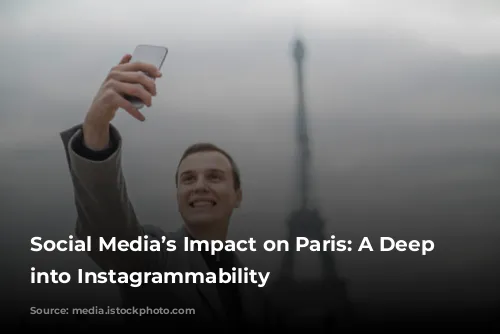This article delves into a fascinating and timely topic: the influence of social media on our perception of Paris. Inspired by a lively podcast discussion, it explores how platforms like Instagram might be reshaping the city’s identity and creating a new breed of spaces designed for maximum “Instagrammability.”
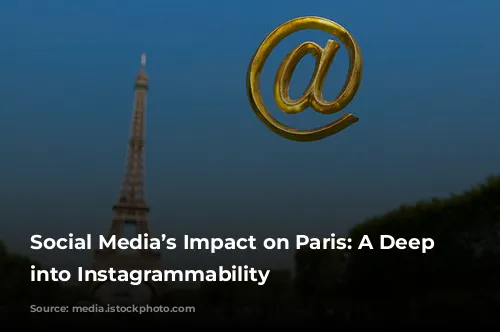
The Rise of Instagrammability and Its Impact on Paris
The podcast episode delved into the impact of traditional media on the romantic and even fetishized perception of Paris. However, the conversation ended before exploring the specific influence of social media, particularly Instagram, in shaping the city’s landscape.
The rise of social media has brought about a new era of democratized journalism, blurring the lines of journalistic responsibility. With millions of followers, individual Instagram users wield immense power in influencing perceptions, potentially in ways never seen before.
This raises the question: How do these platforms impact our perception of the world?
Our daily lives increasingly revolve around capturing the perfect Instagram Story, searching for hashtags that will make us seem relevant, witty, and unique. We’re constantly evaluating our surroundings based on their “Instagrammability,” leading to a surge in new spaces designed for maximum visual appeal.
This focus on visual appeal, however, comes at a cost.
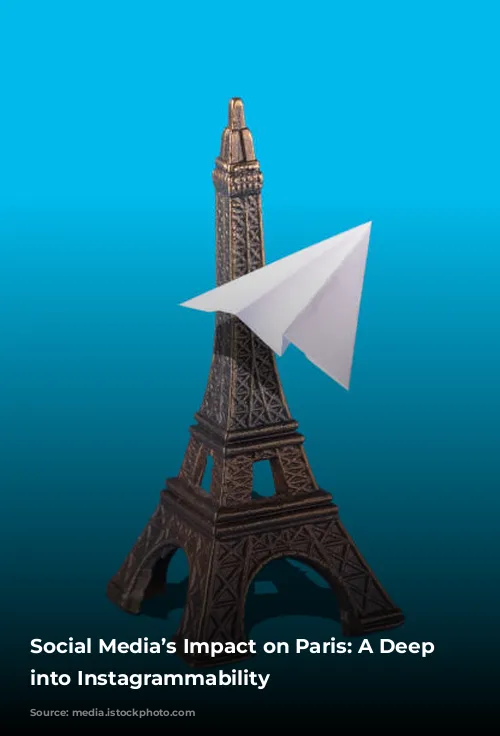
The Problem of Scale: Paris Through a Smartphone Lens
The pursuit of Instagrammability has introduced a new problem: scale. In a city as grand as Paris, the quest for the perfect Instagram shot can lead to a distorted view of the city’s true grandeur.
As the article illustrates, this can be seen in the rise of restaurants designed for aesthetic appeal rather than authentic experience. While visually striking, these spaces may lack the genuine charm and character that make Paris so unique.
This focus on “Instagrammable” spaces reduces the city to a collection of curated moments, sacrificing the depth and complexity of the Parisian experience. The city’s vastness and richness are reduced to a series of screen-sized visions, limiting our ability to truly experience the magic of this iconic destination.
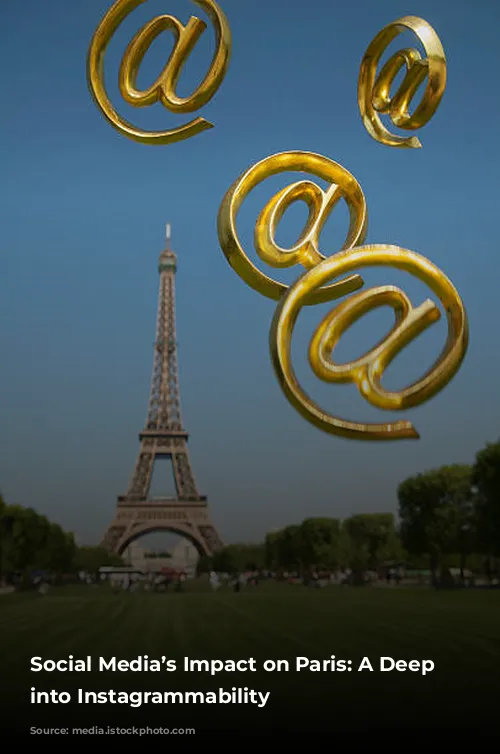
The Cognitive Dissonance of a Digital Paris
The widening gap between digital representations and the real world is creating a cognitive dissonance. We are becoming increasingly disconnected from the tangible reality of Paris, focusing instead on how the city appears through a smartphone lens.
This shift in focus is not limited to tourists. Even those who call Paris home are falling prey to this digital distortion. We’re sacrificing authentic experiences in favor of “Instagrammable” moments, losing sight of the essence of what makes Paris truly unique.
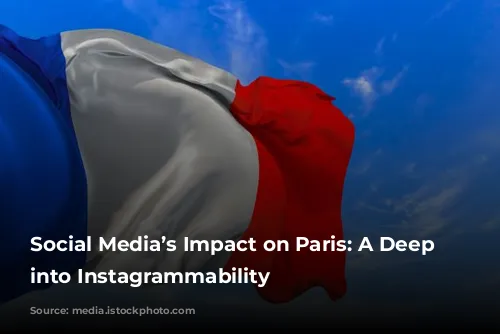
Reconciling Reality and Digital Representation
The author, however, is not entirely pessimistic. He believes that despite the challenges of digital influence, the real magic of Paris will always shine through. Eventually, we’ll be forced to put down our phones and engage with the physical world, rediscovering the true essence of the city.
The article urges readers to reflect on how their own perception of Paris has been shaped by social media, inviting them to engage in an ongoing dialogue about the impact of digital influence on our understanding of the world around us.
